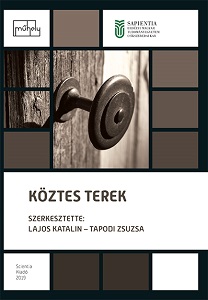Kosztolányi Dezső irodalompolitikája a revíziós törekvések időszakában
Dezső Kosztolányi’s Politics of Literature in the Period of Revisionism
Author(s): Zsuzsanna Arany
Subject(s): Language and Literature Studies, Studies of Literature
Published by: Scientia Kiadó
Keywords: Anti-Semitism; cultural diplomacy; Dezső Kosztolányi; revisionism; Treaty of Trianon;
Summary/Abstract: While Dezső Kosztolányi declared himself as an apolitical writer, we cannot deny his role in cultural diplomacy. Shortly after the 1st World War, during the peace talks in Paris, he became an irredentist, but later, in the period of the political consolidation – when István Bethlen was the prime minister –, his point of view changed. In the 1920s, Kosztolányi began to embrace a revisionist cultural politics and cultivated numerous connections with writers from the countries of Little Entente. His plan was to connect the Hungarians living in minority on the territories of the former Hungarian Kingdom with the parent state’s cultural life. In the framework of that project, Kosztolányi translated the works of several authors from the Little Entente such as Karel Capek’s R. U. R. He visited Serbia and Transylvania and planned to go to Czechoslovakia as well for a reader’s tour. The last one was miscarried since the writer was attacked in the press because of his former irredentist articles. But Kosztolányi also got in touch with a number of artists from Hungarian minorities in the diaspora, and besides that he published his own writings in papers outside the country. One of Kosztolányi’s main theses in that period was that our national community was the community of Hungarian language. According to his belief, not only Hungarians living beyond the borders can became an organic part of the national culture but Jews as well. Therefore, Kosztolányi confronted his former radical (and mostly anti-Semite) forum called Hungarian Writers’ Association led by Dezső Szabó.
Book: Köztes terek (2019. április 26–27., Csíkszereda)
- Page Range: 59-68
- Page Count: 10
- Publication Year: 2020
- Language: Hungarian
- Content File-PDF

